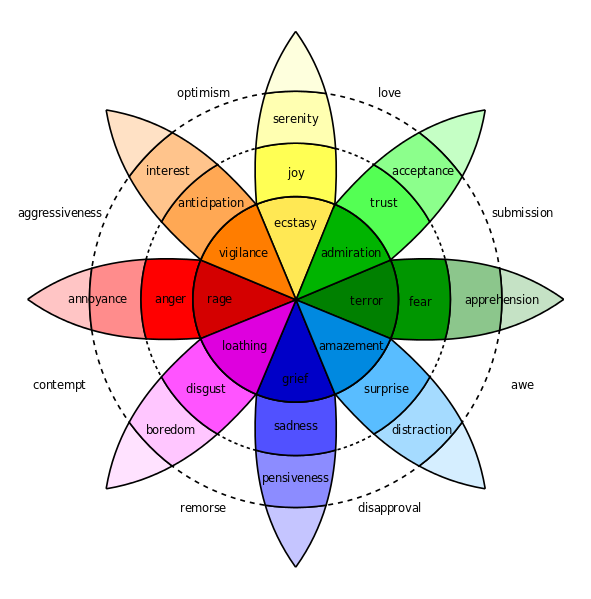
Let's just get it out in the open, once and for all.
All successful musicians are drug dealers.
Now before you click that close button and disregard such an outlandishly brash generalization, bear with me. Here's what I mean:
Any musician who is succeeding in today's market has come to terms with the realization that they are no longer selling a product — they're selling emotion. They're selling the dopamine that seeps its way into your brain when you connect with the emotional experience they offer you. They're selling the memory of that night out when you met your wife and sang along to the best band ever.
What am I talking about?
You got it. Emotional Marketing.
Music, by its very nature, is a catalyst for emotion.
What is Emotional Marketing?
My favorite reference for crowd-sourced knowledge, Wikipedia, is spot on in their description of emotional marketing:
"Emotional branding... refers to the practice of building brands that appeal directly to a consumer's emotional state, needs, and aspirations. Emotional branding is successful when it triggers an emotional response in the consumer, that is, a desire for the advertised brand (or product) that cannot fully be rationalized. Emotional brands have a significant impact when the consumer experiences a strong and lasting attachment to the brand comparable to a feeling of bonding, companionship, or love."
What's the last product you purchased on impulse? Did it make you feel good when you did so? How about a brand you find yourself buying from continuosly? Do you always have a pair of Converse Chuck Taylors at the ready? Sure, they're comfortable and stylish, but just maybe they also make you feel like the cool kid?
As much as we try to logic our way into becoming a more technological species, humans are emotional animals who make a good majority of our decisions through emotional reasoning. Emotional marketing feeds this side of our nature and connects our emotional state with a brand, product, or experience that can amplify, reward, or soothe whatever it is we're feeling.

Music, by its very nature, is a catalyst for emotion. Ancient warlords used drums to show their ferocity and send fear into the hearts of their enemies. High-rise skyscrapers first used 'Muzak' to calm their denizens about the prospect of riding a tiny metal box up to the 60th floor cramped next to 5 other people. Music can help you feel a whole gamut of emotions or tell entire chapters of a story in just a few words and notes. In a way, music and emotion have always been in tandem, and in today's world where your average consumer is flooded with 5k or more advertisements a day, it gives music marketers who understand that emotional connection a giant upper hand.
To master emotional marketing, you must understand that having a potential fan / customer know what your product is or does is only secondary to having them know what it does for them.
What makes Emotional Marketing effective?
Let's get scientific for a second. Your brain is a super complex web of connections, all of which have built upon or relate in one way or another to each other. When we experience the world, these connections strengthen or weaken depending on our visceral reactions: fear, happiness, loss, joy, pain. Every emotional layer triggers an instinctual reaction. Robert Plutchik’s famous “wheel of emotions” shows just some of the well known emotional layers.
 Each of these trigger the brain to release specific chemicals or hormones that, in turn. produce lasting reactions and memories of feelings.
Each of these trigger the brain to release specific chemicals or hormones that, in turn. produce lasting reactions and memories of feelings.
While everyone's brain and environmental emotional context is different, there are general rules about how each of these hormones make us feel.
Happiness triggers the left pre-frontal cortex and in reponse, promotes us to connect... to share. It's no surprise, then, that happiness and humor tends to be a viral catalyst for social sharing which marketers use especially on TV.
Sadness triggers our brain to produce cortisol and oxytocin which connect us to feelings of eustress and empathy. Ever wonder why you still get tied into those Lifetime movies?
Fear or surprise triggers one of the more animalistic parts of our brain; the amygdala, which controls our "fight or flight" response and feelings of distress. Marketers often use these feelings to inspire a feeling of urgency.
The list could go on and on, and smart marketers keep these at their ready whether marketing music, a movie, or the next flavor of Mountain Dew.
How do I use Emotional Marketing?
With over 5.3 trillion display ads shown online each year, 400 million tweets sent daily, 144,000 hours of YouTube video uploaded daily, and 4.75 billion pieces of content shared on Facebook every day, merely posting a few blasé blogs on your website just isn’t going to cut it. You’re going to need something that cuts through the clutter and connects at an emotional level.
To master emotional marketing, you must understand that having a potential fan / customer know what your product is or does is only secondary to having them know what it does for them. Connecting to an intrinsic need is what will drive engagement to your brand.
So what does this mean in English?
Let's use an example from one of the masters in emotional marketing, Apple.
Here's an ad from Apple's recent iPad Air campaign
In case you didn't catch that, here's the play by play:
- The human race is filled with passion.
AWARENESS (let's remind you / make you aware of your ability to feel emotion)
Emotions: interest - Poetry, beauty, romance, and love are what we live for... What good amid these, oh me, oh life?
CONSIDERATION (let's help you clarify and consider this emotion... your wants, desires, hopes, and dreams)
Emotions: anticipation, serenity - That you are here; That life exists... That the powerful play goes on and you may contribute a verse.
DECISION (let's work you up to an unconscious decision to feel, to desire more... up to the top of a mountain of hopes and dreams that you've just been shown visually)
Emotions: joy, optimism, hope - What will your verse be?
CALL-TO-ACTION (Jump. Let's send you soaring off that emotional mountain with a call-to-action, while at the same time revealing our brand, now creating a connection between the two)
Emotions:vigilance, ecstacy, surprise
If you've read our blog about the nurturing stages of a Buyer's Journey, you'll recognize that within 90 seconds Apple was able to run you through a micro-instance of 3 stages and leave you with a challenge... a decision. Buy (y)our iPad.
As a marketer, these stages are a great reference point to understand the emotional behavior of your customer, whether through one elegant interaction or multiple smaller ones.
---------------------------------------------------------
Scary? Brilliant? Manipulative? Maybe some of each, but as is the case with any marketing tool, with great power comes great responsibility. Use emotional marketing wisely to always help or endear your customers to you.
So, what do you think? How would you use Emotional Marketing? How are you using it now? Let us know in the comments below!
Want to put your emotional marketing into action now? Learn the Best New Music Marketing Strategy.



